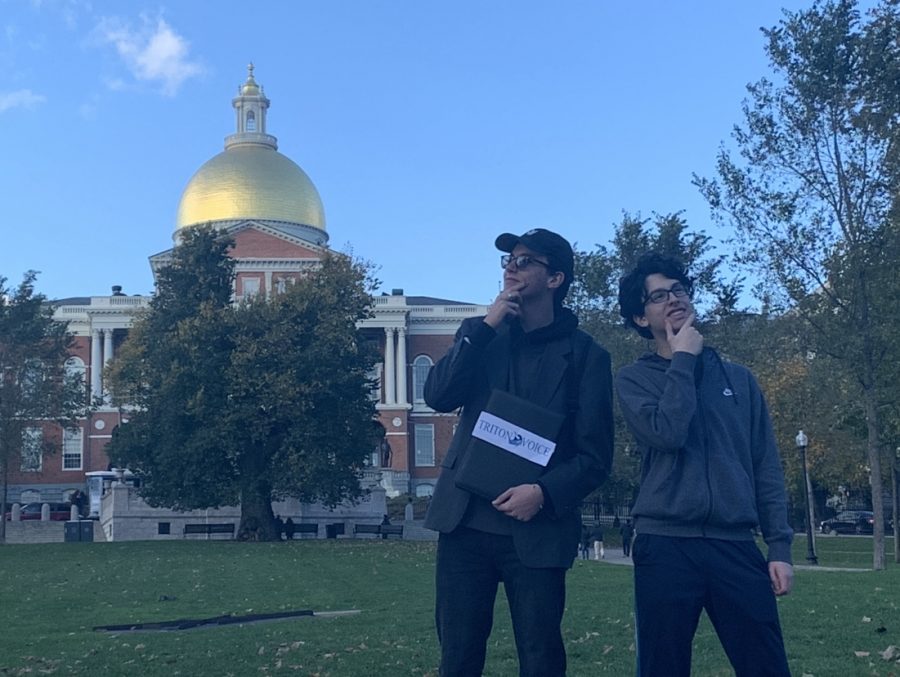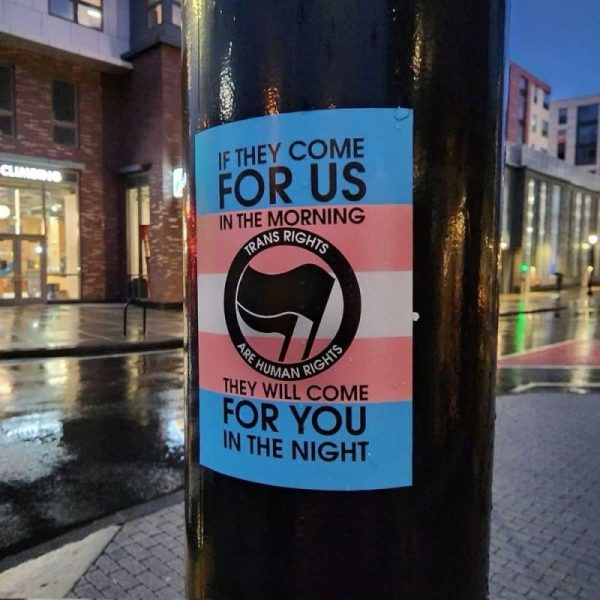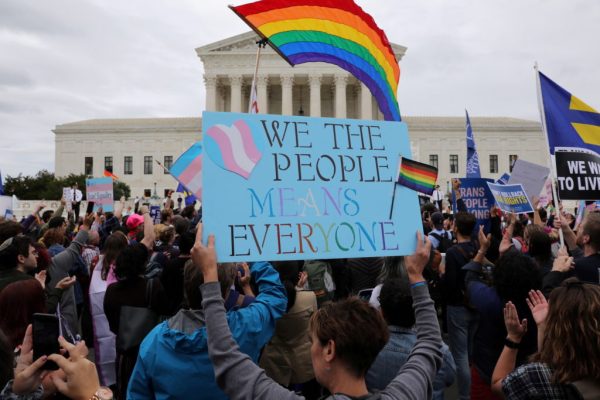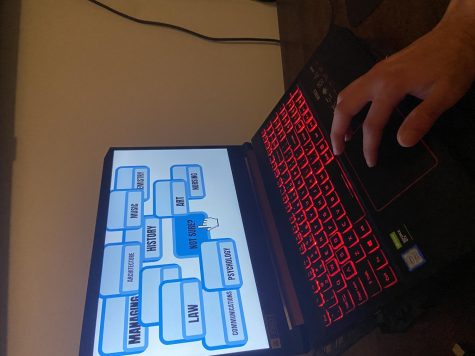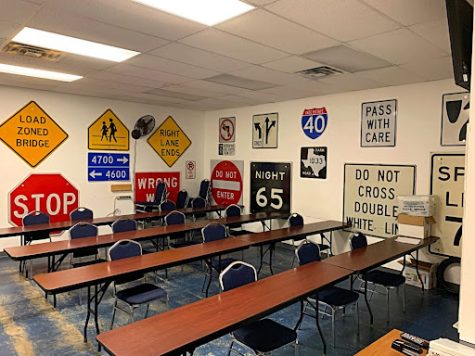How Informed Are We?
An On-The-Street Survey Pits Triton Students’ Knowledge Against People on the Streets of Boston
Staff Writers Timmy Timmons and Miguel Gigandet pose with the Massachusetts State House.
Tuesday, November 3rd, 2020 will be the first opportunity for many Triton Students to cast their ballots. With access to information being as easy as ever, we set out to see how Triton students compare against the average Bostonian regarding their knowledge of the United States government.
The world today seems to feel as politically charged as ever. The news is dominated by political story after political story, so we figured we should test how much people really know about the government; no political questions, only questions with an undeniable answer.
Thomas Jefferson once said, “Whenever the people are well-informed, they can be trusted with their own government.” So, can we be trusted?
The Bostonians fared well against our questions. They averaged a 69 percent on the test for correct answers. Here at Triton, our average was a less impressive 49 percent. But, let’s break down where both subject groups excelled – and fell flat.
Every person who was interviewed got Question 1 right and was able to name the Democratic and Republican parties. The subjects also seemed to do very well when it came to Question 5, where only one person from both surveys could not answer the question.
In terms of where the subjects didn’t do so well, that would be Question 9: What is The Writ of Habeas Corpus? Only one person in Boston was able to correctly answer that question, and two Triton students answered correctly.
Many interesting answers came from Triton students when confronted with questions that they weren’t quite sure of an answer to. When asked “Who wrote the Declaration of Independence?” senior Hunter Berlind answered, “Me.”
Question 7 was the question that had to do with the most current specific event. The question referred to President Trump’s recent decision to relinquish support of the Kurds in Northern Syria and pull out U.S. troops. A total of 76 percent of the people interviewed in Boston were able to name Syria, but just 33 percent of Triton Students could.
This brings up arguably the most important question of the set, Question 10, which refers to the upcoming 2020 Presidential Election. Many Triton students will be able to vote for the first time, so it is important for these people to understand all of the options that they have when picking their candidate.
Our survey found that only two Triton students were able to name four Democratic Candidates, which is a considerable outlier to the 70 percent of Bostonians who were able to name at least four of the candidates.
Out of all of the people who were interviewed only one person correctly answered all 10 questions. That person was Triton junior Roswell Hunt Lyon.
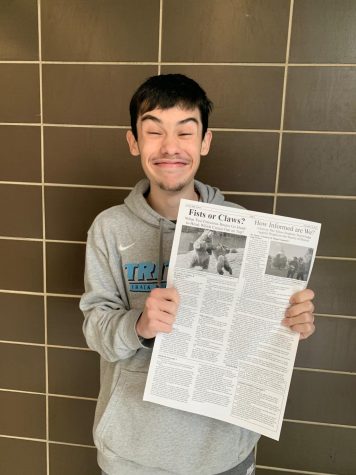
Triton junior Roswell Hunt Lyon poses with a copy of the Triton Voice newspaper featuring this article.
“Wow, that’s scary.” said Lyon when he was informed that he did the best. “I mean, I’m happy that I did the best but hearing how bad some other kids did is sad. You really should know most of this stuff.”
So, what is there to learn from this? Mainly, that it is very important to be informed on modern events and politics. Voting is a civic duty that matters and shapes the future of our country, and if people don’t know what they’re talking about, how can they make an informed decision?
It is important for Triton students to know what is happening in the world around them. Our generation will soon inherit all of the problems of the modern world, so it should be our duty to do as much as we can to stay educated and be able to contribute to the conversation.
Answers:
- Democratic and Republican Parties.
- 10 Amendments in the Bill of Rights.
- Legislative, Executive, and Judicial.
- The President.
- The Vice President.
- 100 (2 per state).
- Syria.
- Thomas Jefferson.
- “a writ requiring a person under arrest to be brought before a judge or into court, especially to secure the person’s release unless lawful grounds are shown for their detention.” (More simply, gives rights to the detained or those who have been accused of a crime.)
- Multiple Answers: Elizabeth Warren, Joe Biden, Bernie Sanders, Andrew Yang, Pete Buttigieg, + more.

Hi, my name is Timmy Timmons, and I’m a Senior at Triton High School. Outside of school I am an avid photographer, and enjoy playing golf (most of the...

My name is Miguel Leon Gigandet, or MLG for short, and I am a Junior at Triton High School. Inside of school I like to be around friends and talk about...


